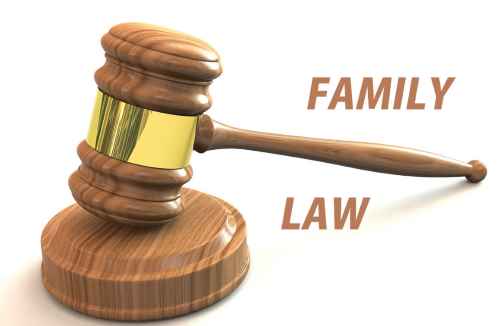Legal Questions? / Legal Answers!

Pleading Guilty Or Not Guilty.
"So are you guilty? It might not matter.
It always comes down to what the State or
District Attorney, can prove. Before you
go in with the thought of just pleading guilty,
I would suggest you take a moment to see
what evidence the State has collected against
you. It just might be less than you think.
That might lead to a plea agreement to a
lesser charge or fine. If you are not pleading
guilty today, you'll see the court house
at least two or three times more before your
case is settled.
Once the judge enters the courtroom, he will
sit down and proceed to instruct you on how
the court will conduct their business in
relation to everybody present. He will go
over what the District Attorney may offer
you and he will remind you of your right
to a trial. After the Judge gives their instructions,
they will then call each defendant by name
and usually in alphabetical order. This is
just to see if you are in the room. If your
not there when the Judge calls your name,
you could be found Guilty of your charge(s)
by default. If your charge is a serious offense,
the Judge could issue a warrant for your
arrest. If this happens you could also lose
any bail money that you might have coming
back to you even if you are found Not Guilty
later on.
"Just an observation. I have seen several
Judge's put those names aside, that didn't
respond to his "roll call." I am
not sure if you would lose your right to
be heard if you were late, or just couldn't
make it in. I have also heard both the Bailiff
and the District Attorney tell the Judge
that they had received word from the Clerk
of Courts that the defendant was on their
way. I am thinking if you cannot make it
in or are going to be late, and you have
a very good reason, call the Clerk of Courts
and let them know. They will get word to
the Judge of your situation. They may also
be able to let you know the position of your
case ( what the Judge allowed ) if you cannot
make it in."
So the Judge has called everyone's name in
that very large file case load that sits
next to him. He will now explain that each
of you will be called in, one by one, to
discuss your case with the District Attorney.
The District Attorney will then call each
person by name, take them into a small interview
room, and explain what they will ask the
Judge to do, in reference to their case against
you. Fine, Restitution, Community Service,
Jail Time, Probation, these are some of the
options at their disposal. They want to end
most cases without the time or expense of
a trial and usually offer you a "plea
deal." What is a plea deal? well, in
their eyes it usually is a lower fine, or
a lighter sentence "than what we could
ask for." An offer to have you plead
guilty to one fine and perhaps drop other
charges, maybe a lower charge which would
include a lower fine or less jail time. Now,
you cannot take the deal unless you know
what evidence the State has against you.
Before they can offer you a deal, you must
be given Discovery. (See: Asking for Discovery) This will allow you to examine every police
statement, and witness statements, they will
use against you.
"Statements are inadmissible in court,
unless the person who wrote the statement
is present in court. They only tell the District
Attorney what they know about the case and
what they are prepared to testify to. Any
statement they want to use, they will need
that witness present to testify. This gives
you your right to "cross examine"
that witness, or ask them questions as well.
If you choose to plead Not Guilty, the District
Attorney WILL subpoena any witness that has
written a statement in your file,
This includes the Police ( who have to show
up to testify or it's possible your case
may be thrown out. )"
After you have had time to read what evidence
the State has against you, you will then
be given a chance to make a deal with the
District Attorney.
What is a deal? well, in their eyes it usually
is a lower fine, or a lighter sentence "than
what we could ask for." Now, you cannot
take the deal unless you know what evidence
the State has against you. Before they can
offer you a deal, you must be given Discovery.
This will allow you to examine every police
statement, and witness statements, they will
use against you.
So if you take a plea deal, the DA will then
go into court and tell the Judge you have
both agreed to this decision. The Judge will
ask you if you understand you have a right
to a trial and then ask you if you agree
to the terms of the plea deal. If you agree,
the Judge will hand down the sentence right
then.
Fines - If your fined and you have bail money
being held, that money will be going toward
your fine. If it pays it off and there is
a balance, you will get that back. If the
fine is more than your bail amount, be prepared
to tell the judge how you will be paying
the difference. They may allow you a payment
plan until the fine has been paid off. However,
if you agree to any amount to be paid on
any given date and you fail to make that
payment, a warrant could be issued for your
arrest for breaking a Judge's order.
"I strongly suggest that you do not
ever promise more than you can do. A Judge's
order must be followed and reasons for not
doing so may not matter. If you are allowed
to make payments, ask for the amount you
are positive you could pay the court. Explain
to the Judge that you feel this amount, is
the most you could make, without violating
his order."
Probation - You could also be sentenced to probation
as part of your fine.The amount of time you
will have to report to a probation officer,
will be based on the charge you have been
found guilty of. There will also be rules
and regulations that you will have to follow.
They will be spelled out and breaking one
could result in your arrest and incarceration.
Jail - If there is a chance of jail you may be
able to ask for a date and report time to
show up to start your sentence. If the Judge
allows your request to get your affairs in
order, you'll be given a time and date to
show up at the jail to start your sentence.
If he doesn't, he will have you handcuffed
and taken away for jail processing.
My Final Thought...

"The not guilty process may take awhile
to play out. You will travel back to the
court house several times, to mull over offers
made by the District Attorney. They are hoping
you'll take their offer and plead guilty.
That will save them from having to prove
their case and perhaps losing it. Please
understand... this is why most fail to obtain
what they want or can live with as far as
the end result. The DA is hoping everytime
you have to come back, you will sooner or
later take their offer. On a Domestic Abuse
Case, we went back 4 times and refused each
offer they made. Funny how on the last day
before getting a trial date, the DA suddenly
decided to give us what we wanted and what
we offered to take, the very time we met
with them. Pleading guilty or not guilty
can be a hard decision to make. I believe
we all have paid a fine for a charge we knew
we were not guilty of. Agreeing to pay money
to the court in order to save us time from
work. If you ever plead not guilty and you
decide to fight the charge, you are entitled
to talk to the DA at anytime. They won't
help you to win your case but they may be
available to see a picture or video or even
a witness statement and agree to dropping
your charge. Keep in mind that in a trial
by jury, it only takes one person who does
not agree with the 11 others, for your case
to be dismissed."

